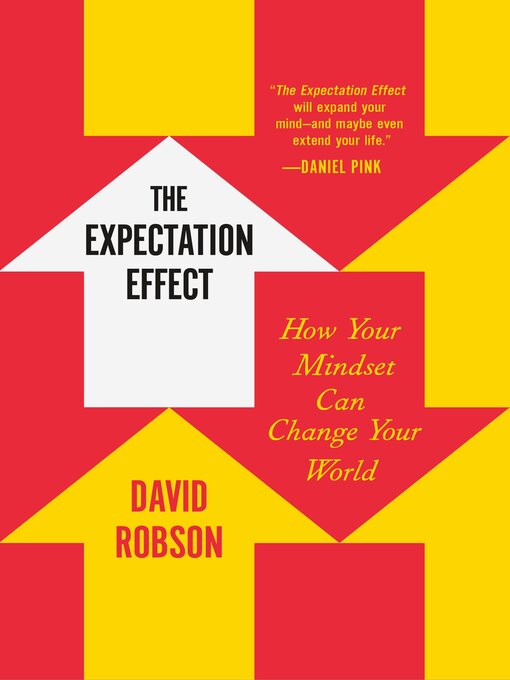"As David Robson makes plain in this compelling book, the way we think about the world can profoundly shape how we navigate it. Based in science and packed with smart advice, The Expectation Effect will expand your mind—and maybe even extend your life."
—Daniel Pink, New York Times bestselling author of When, Drive, and To Sell Is Human
A journey through the cutting-edge science of how our mindset shapes every facet of our lives, revealing how your brain holds the keys to unlocking a better you
What you believe can make it so.
You've heard of the placebo effect and how sugar pills can accelerate healing. But did you know that sham heart surgeries often work just as well as placing real stents? Or that people who think they're particularly prone to cardiovascular disease are four times as likely to die from cardiac arrest? Such is the power and deadly importance of the expectation effect—how what we think will happen changes what does happen.
Melding neuroscience with narrative, science journalist David Robson takes readers on a deep dive into the many life zones the expectation effect permeates. We see how people who believe stress is beneficial become more creative when placed under strain. We see how associating aging with wisdom can add seven plus years to your life. People say seeing is believing but, over and over, Robson proves that the converse is truer: believing is seeing.
The Expectation Effect is not woo-woo. You cannot think your way into a pile of money or out of a cancer diagnosis. But just because magical thinking is nonsense doesn't mean rational magic doesn't exist. Pointing to accepted psychology and objective physiology, Robson gives us the practical takeaways we need to improve our fitness, productivity, intelligence, and happiness. Any reader who wants to take their fate into their own hands need only pick up this book.
- Just Added Adult Fiction eBooks
- Just Added Adult Nonfiction eBooks
- Spanish Language Titles (Just Added)
- Fiction to Read for Women's History Month
- Hallmark After Dark
- YA Titles That Adults Will Love, Too
- Reimagined Classics
- Saw it on Netflix (or Prime or Hulu or HBO), now read the book
- Oh My Gods & Goddesses
- Nonfiction That Reads like Fiction
- I Should Probably Read This Sometime...
- Reese's Book Club
- New GNs & Manga for Adults
- See all ebooks collections
- New audiobook additions
- Spanish Language Titles (Just Added)
- New Adult Fiction Audiobooks
- New Adult Nonfiction Audiobooks
- Books to Listen to for Women's History Month
- Romance for Listeners
- YA Titles That Adults Will Love, Too
- Reimagined Classics
- Best Audiobooks for Your Commute
- Reese's Book Club
- Available now
- New kids additions
- New teen additions
- See all audiobooks collections


